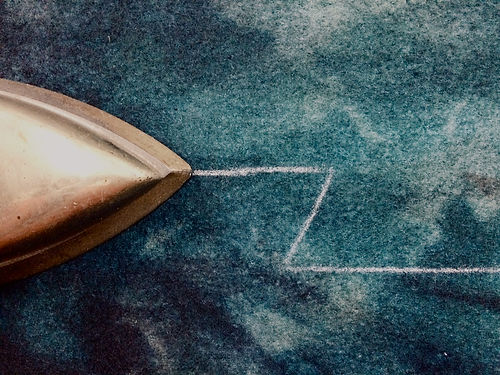We were born in Montevideo in 2002
with the union of the designers
ANA LIVNI and FERNANDO ESCUDER
We are a company
clothing creative research.
We integrate the "slow fashion" movement,
walking slowly but surely,
We promote the development of sustainable work.
We are identified by the “slow” pace of lifetypical of Uruguay where we create and grow.
We design from textile fiber a new local concept beyond borders, seeking to revalue material resourcesland and human resources of Uruguay and the Region; uniting art with industry, creating lasting clothing, inheritable since 2002.
Fernando and Ana are a couple parents, and business partners designing and creating clothing. They met while studying at the Centro de Diseño Industrial in Montevideo, started dating and later they traveled to Italy to finish their graduate studies. Once back in Uruguay, they worked for a few textile companies until 2002, when they started their creating their own wool garments under the brand "Ana Livni Slow Fashion."
For both, the interest in design and textiles began while spending time with their grandmothers. Fernando's grandmother used to do embroidery pieces, while Ana's, besides knitting, used to own one of the first department stores in Uruguay back in the 50s. There, Ana got the chance to see and learn about many different fabrics and crafting materials.
Fernando and Ana were pioneers in the "Slow Fashion Movement" in the region giving lectures and conferences in Chile, Brazil, and Argentina. They where in Europe when they learned about the Slow Food Movement and decided to apply it to the Fashion Industry.
"We don't really like the word "fashion" all by itself. We find it too ephemeral, too fleeting, to disposable... We want that our creations, inspired by art, to last. We believe in 'fashion that can be inherited'. When we create, we develop our own color palette and we take our time to develop each garment."
They chose wool as the local raw material and started developing a product with identity; in Uruguay there are less than 4 million people and more than 7 million sheep, making Uruguay's wool one of the best in the world. Also, since the wool production is all done locally, it is very easy to experiment with color and texture very early on in the design process, allowing more control over the material and the creation of each garment. When they aren't at work, Ana and Fernando like to do outdoor activities with their son and to be in contact with nature.
They also enjoy going to art exhibitions and being in contact with creative minds. They have participated in many educational programs where they open the doors of their studio to students, and teach them about their design process and techniques, as well as encouraging them to experiment and create their own designs. Ana and Fernando strongly believe in an ethical and responsible 'consumption' of fashion, understanding the importance of the work of all the people involved in the process.
Natalia Jinchuk
August 2017
Fashion,says Dutch scholar and trend expert Li Edelkoort,it's out of fashion. And it needs a root change.
From an iconic workshop in the Old City, creators emerge with their own aesthetics but above all with a work philosophy that keeps them on their way. slow fashion. A phrase that becomes a mantra: “no rush, no pause”. Ana Livni and Fernando Escuder, a couple for more than 20 years, were pioneers in Uruguay in playing with the concept of designer design, which emerged with the 2001 crisis in the Río de la Plata. Industrial designers graduated from the former Design Center (today EUCD), with a Mercosur Design postgraduate degree from Polimoda in Florence, represent the link between the almost non-existent Uruguayan textile industry and the new breed of independent brands.
The Atelier Livni-Escuder, which is celebrating its 15th anniversary, stands up in a patriotic gesture. Even with the possibility of remaining in more encouraging markets, the need to create from the local culture, enrich it and educate in design was always stronger. Ana and Fernando question and experiment. They belong to the school of making and therefore they sew, dye, stamp, transform, sublimate... They connect with artists, artisans, workshop owners, manufacturers, producers. They conscientiously disassociate themselves from the fashion business and position themselves as Industrialists of culture. His garments go through seasons, they become treasures in the wardrobes of clients in Uruguay and the world.
Today I toast to this sustainable project, challenging the status quo, which adds value to its environment and which continues to write its own history.
Natalia Jinchuk
August 2017




